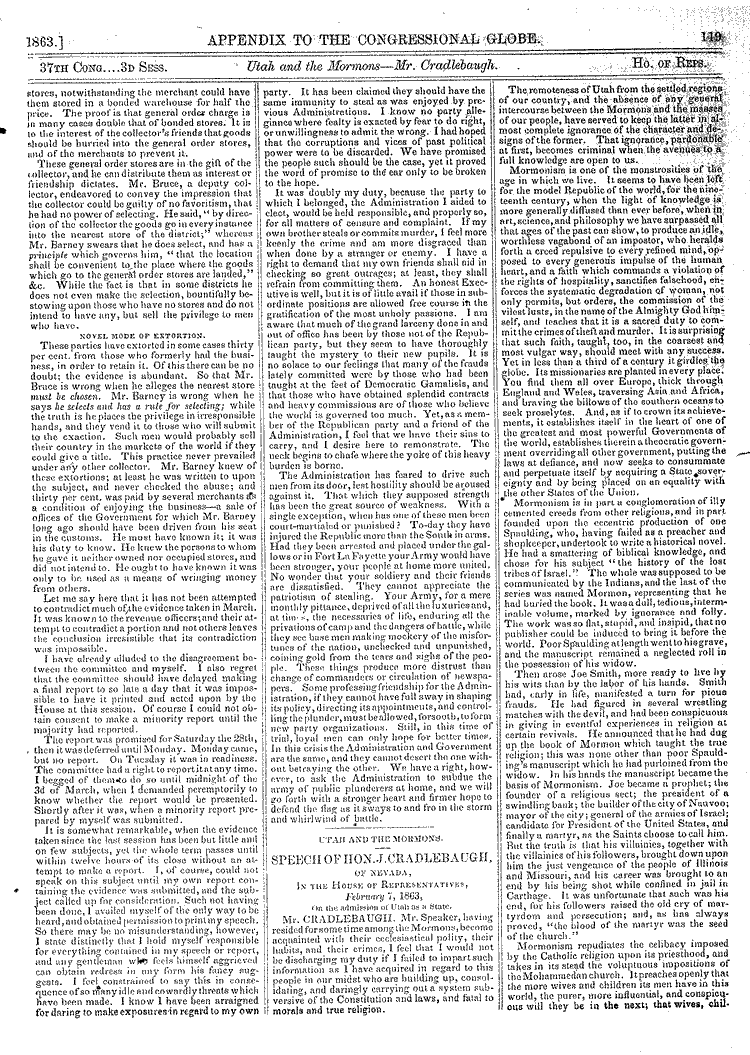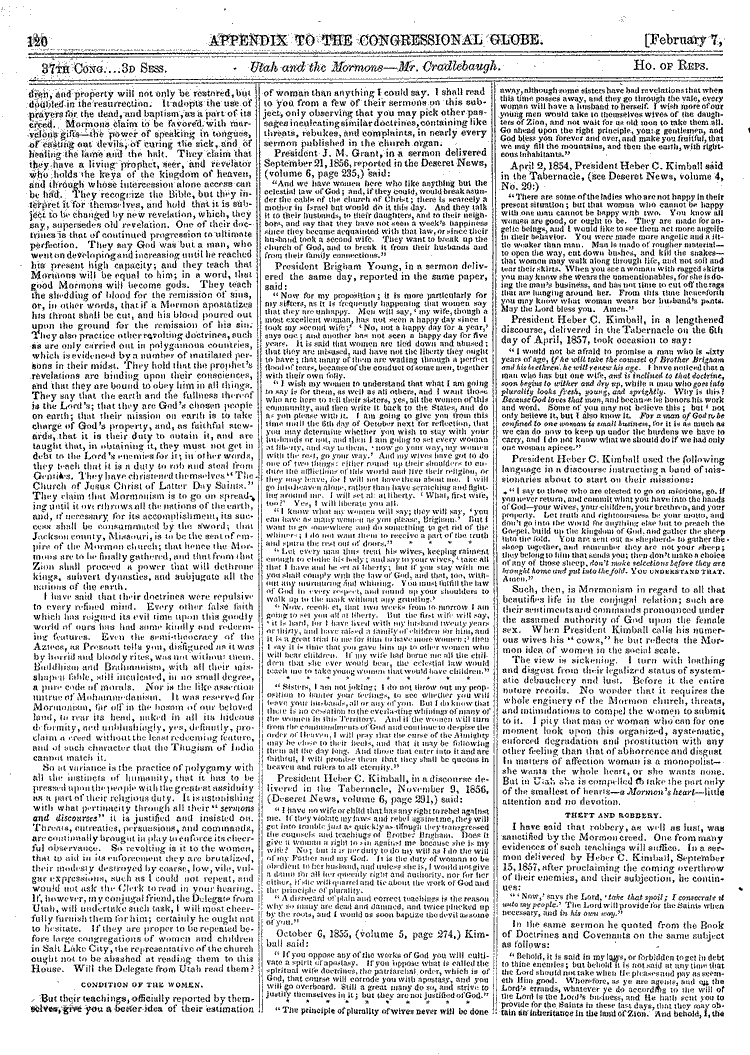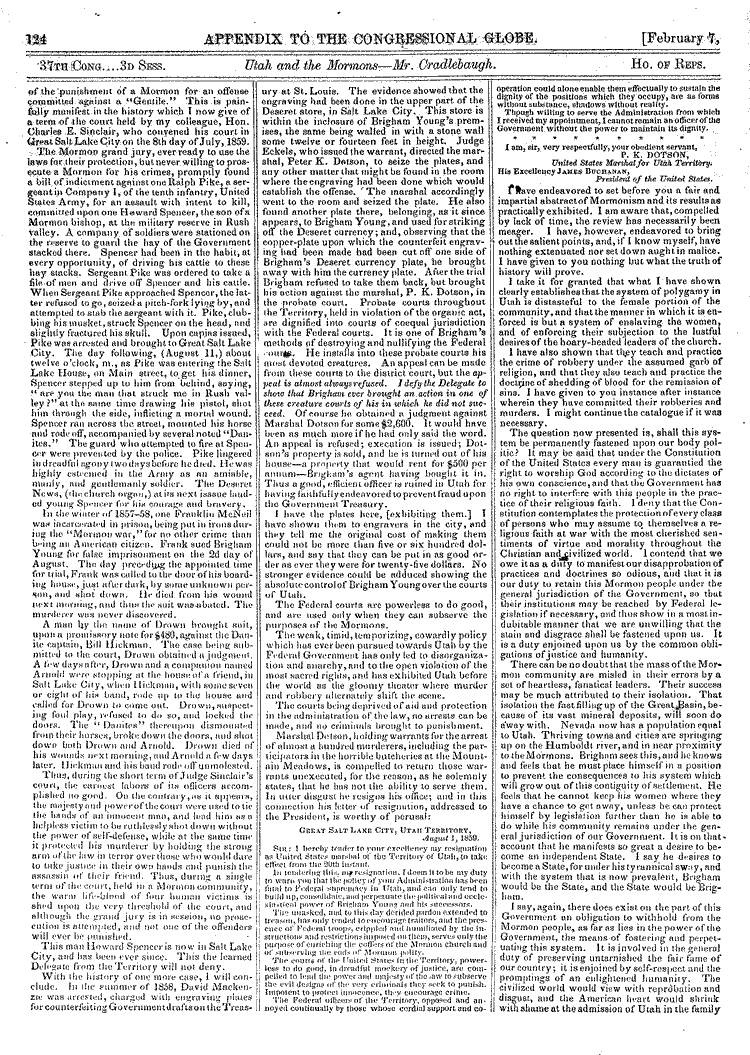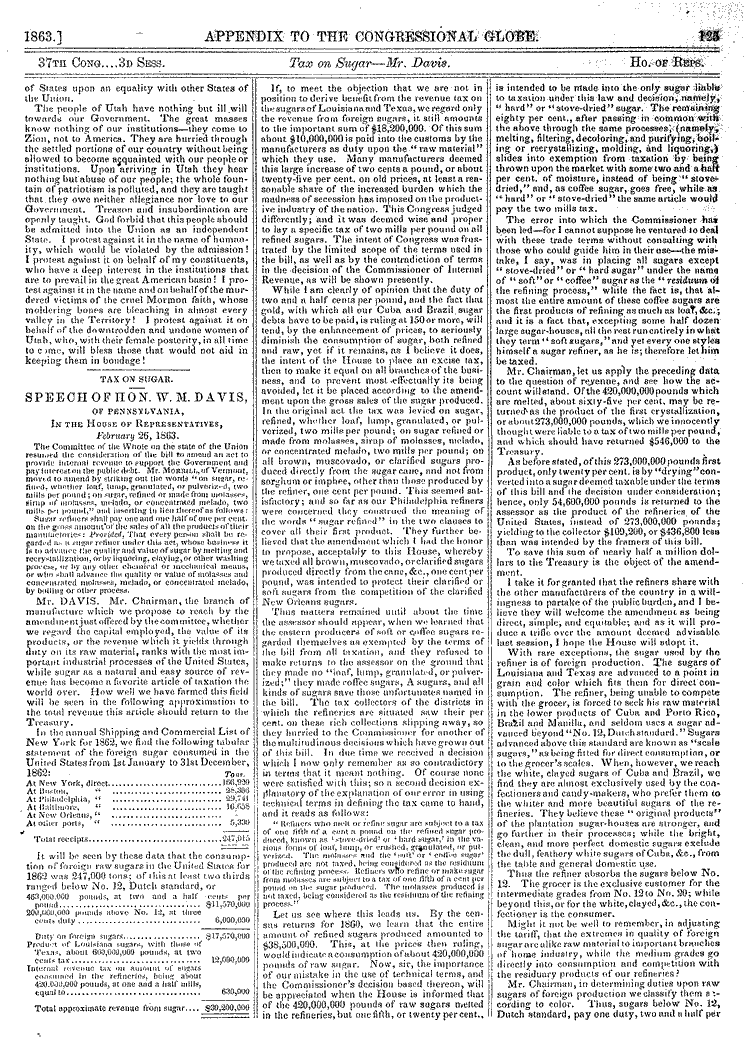Judge John Cradlebaugh's statement concerning the massacre at the House of Representatives, February 1863.
- Type
- Speech / Court Transcript
- Hearsay
- Scribed VerbatimReprint
- Reference
“Utah and the Mormons,” a speech of Hon. J. Cradlebaugh, in the House of Representatives, Feb. 7, 1863, rep. Appendix to the Congressional Globe, February 23, 1863, 119-125
- Scribe/Publisher
- Congressional Globe
- Audience
- U.S. House of Representatives
- Transcription
Sitting as a committing magistrate, complaint after complaint was made before me of murders and robberies . . . and darkest in this appalling catalogue of blood, the cowardly, cold-blooded butchery and robbery at the Mountain Meadows. At that time there still lay all ghastly under the sun of Utah the unburied skeletons of one hundred and nineteen men, women, and children, the hapless, hopeless victims of the Mormon creed . . . I was the first Federal judge in that part of the Territory after the occurrence . . . I determined to visit that part of my district, and, if possible, expose the person engaged in the massacre, which I did in the early part of the year 1859 . . . I was visited by the Indian chiefs of that section . . .One of them told me, in the presence of the others, that after the attack had been made, a white an came to their camp with a piece of paper, which, he said, Brigham Young had sent, that directed them to go and help to whip the emigrants . . . He said the Mormons were all painted. He said the Indians got a part of the clothing; and gave the names of John D. Lee, President Haight, and Bishop Higbee, as the big captains . . . While at Cedar City I was visited by a number of apostate Mormons who gave me every assurance that they would furnish an abundance of evidence in regard to the matter, so soon as they were assured of military protection. In fact, some of the person engaged in the act came to see me in the night and gave a full account of the matter, intending, when protection was at hand, to become witnesses. They claimed that they had been forced into the matter by the bishops . . . A great portion of the property was taken to Cedar City, deposited in the tithing office, and then sold out; the bed clothes upon which the wounded had been lying, and those taken from the dead, were piled on the back room of the tithing office, and allowed to remain for so great a length of time that when I was there eighteen months after the room was still offensive. What a commentary upon the condition of affairs in our country! Mormonism reveling upon the spoils obtained by murder, while seventeen orphan children are turned penniless upon the world . . . It has been said we have courts in Utah, and the question is frequently asked, why do not the courts act? The uniform testimony of the judges is to the effect that the courts are powerless. More than fifteen Federal judges who have gone to the Territory have so stated. They have again and again told you that the entire legislation of the Territory is to prevent the administration of the laws; that the Church authorities are determined that the laws shall not be enforced in the Federal courts; that the grand and trial jurors are Mormons, and should prevail, and who refuse, therefore, to discharge their sworn duties, and have invariably refused to punish any Mormon for an offense committed against an anti-Mormon.”
- BHR Staff Commentary
- Citations in Mormonr Qnas
The B. H. Roberts Foundation is not owned by, operated by, or affiliated with the Church of Jesus Christ of Latter-day Saints.







